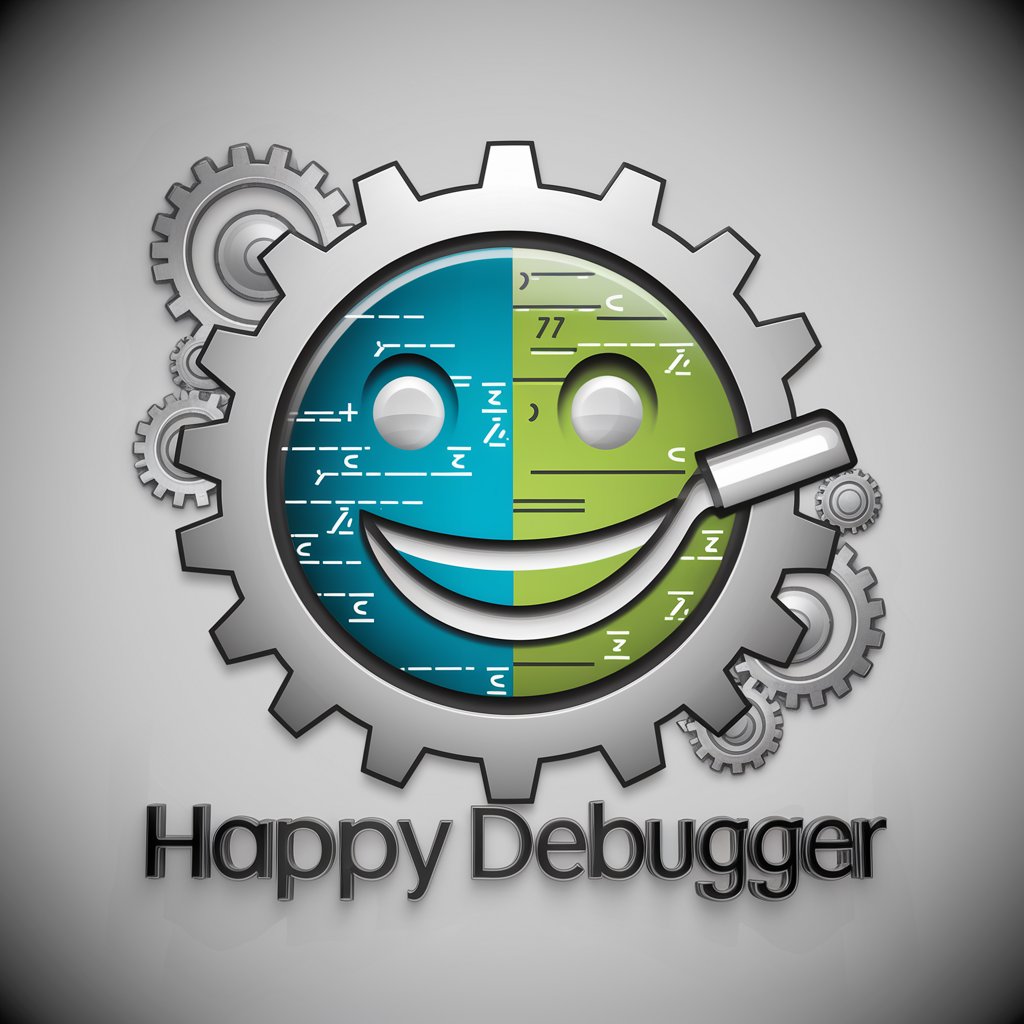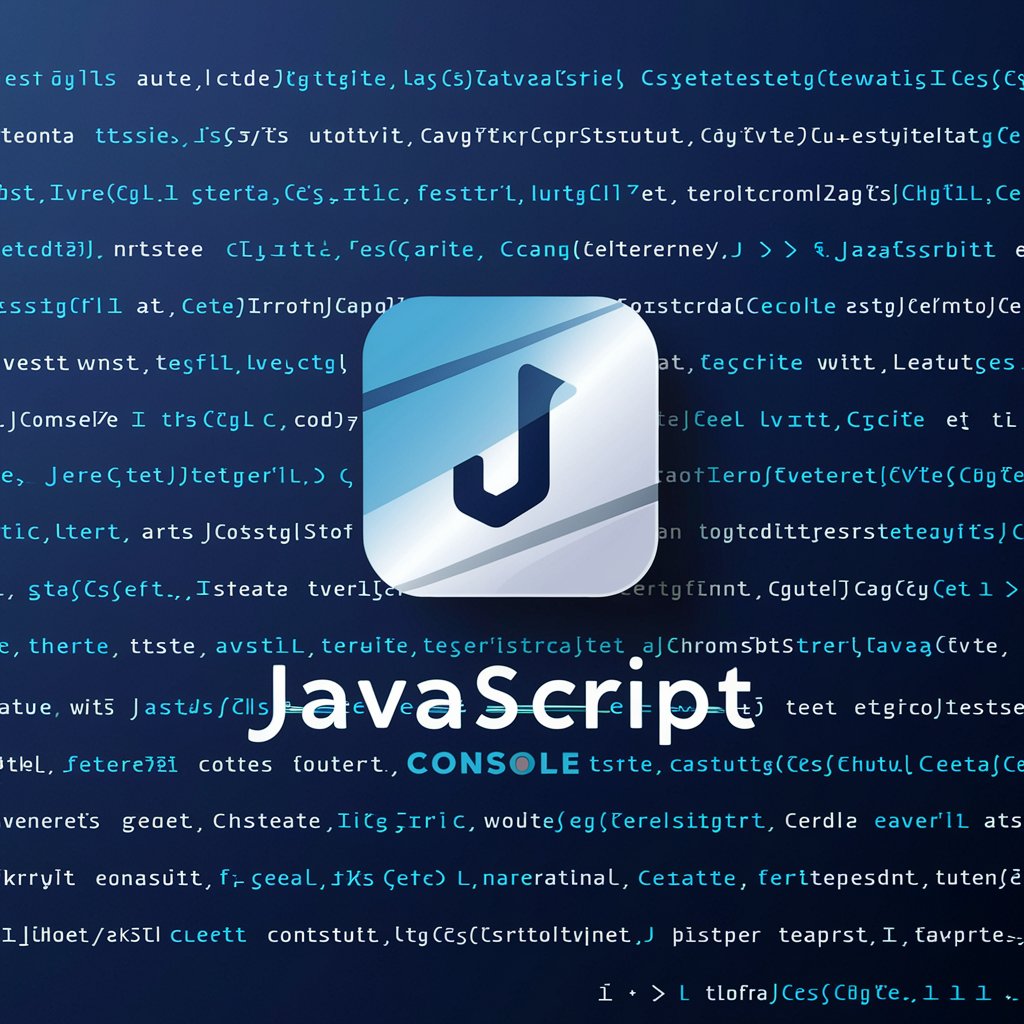
JavaScript Debugging Deep Dive - JavaScript Debugging Insights

Welcome to expert JavaScript debugging and optimization!
AI-powered JavaScript debugging mastery
Explore advanced JavaScript debugging techniques...
Identify and fix memory leaks in your web application by...
Optimize JavaScript performance with deep dives into...
Master the art of debugging complex JavaScript applications through...
Get Embed Code
Introduction to JavaScript Debugging Deep Dive
JavaScript Debugging Deep Dive is designed as a specialized toolset for developers, focusing on identifying, diagnosing, and resolving JavaScript-related issues within web applications. Its core purpose is to streamline the debugging process, making it more efficient and less time-consuming. This involves a deep understanding of JavaScript execution contexts, memory management, performance bottlenecks, and how to leverage profiling tools to uncover hidden issues. For example, a common scenario might involve using the toolset to trace a memory leak back to its source by analyzing memory snapshots over time, identifying unexpected retention of objects in memory, and optimizing code to prevent future leaks. Powered by ChatGPT-4o。

Main Functions of JavaScript Debugging Deep Dive
Memory Leak Detection
Example
Identifying a leak in an event listener that was not properly removed and continues to hold references to DOM elements.
Scenario
A web application's performance degrades over time due to increasing memory usage. Using JavaScript Debugging Deep Dive, the developer takes periodic heap snapshots, identifies the growing number of detached DOM elements, and traces it back to event listeners not being removed after use.
Performance Optimization
Example
Analyzing and minimizing re-render cycles in a React application to improve UI responsiveness.
Scenario
A developer notices sluggish UI interactions in a complex React app. By profiling component updates and rendering times, they use JavaScript Debugging Deep Dive to pinpoint unnecessary re-renders and optimize them by implementing shouldComponentUpdate and React.memo.
Garbage Collection Analysis
Example
Examining garbage collection patterns to ensure timely release of memory.
Scenario
In a Node.js backend service, the developer observes unexpected latency spikes. Using JavaScript Debugging Deep Dive, they analyze garbage collection logs, identify inefficient garbage collection pauses, and refactor the code to use memory more efficiently, reducing pause times.
Ideal Users of JavaScript Debugging Deep Dive Services
Web Developers
Professionals working on complex web applications who need to ensure optimal performance and memory usage. They benefit from detailed insights into how JavaScript code executes, how memory is allocated and released, and how to optimize application performance.
Frontend Engineers
Developers specializing in frontend technologies who seek to create smooth, responsive user interfaces without jank or memory leaks. They benefit from the ability to quickly identify and resolve rendering issues and inefficiencies in event handling or state management.
Backend Developers Using Node.js
Those who build server-side applications with Node.js and face challenges related to memory management, garbage collection, and performance under load. They gain from understanding memory usage patterns and optimizing for efficiency and scalability.

How to Use JavaScript Debugging Deep Dive
Start Your Journey
Begin by accessing yeschat.ai for a complimentary trial, no account creation or ChatGPT Plus subscription necessary.
Identify Your Issue
Pinpoint the JavaScript problem you're encountering. This could range from performance bottlenecks, memory leaks, to unexpected behavior in your web applications.
Leverage Profiling Tools
Utilize browser developer tools like Chrome DevTools or Firefox Developer Edition for memory profiling and identifying leaks.
Apply Debugging Techniques
Follow best practices to inspect and modify your code. This involves analyzing execution contexts, optimizing memory usage, and considering the impact of closures and global variables.
Monitor and Optimize
Regularly monitor the memory footprint of your application, making use of the insights gained to optimize and prevent future issues.
Try other advanced and practical GPTs
Next.js Code Provider
Instant Next.js Coding Solutions

Faithify
Scriptural wisdom at your fingertips

Chemistry aiMOOC
Explore Chemistry with AI

The Analyst
Unveiling Media's Hidden Layers

Coding Challenger - Interview Prepper
Elevate Your Coding Skills with AI

C++ for Cross-Platform Mobile Apps
Craft mobile apps universally with C++.

Javascript Memory Leak Solver's Guide
AI-driven JavaScript memory leak resolution.

JavaScript Performance Tuning: Speed Up Your Code
Optimize JavaScript with AI-driven insights

Python Multiprocessing: Harness the CPU Power
Unlock parallel computing with AI

C# and AI: Crafting the Future of Intelligent Code
Empowering C# with AI Capabilities

Python Data Wizardry with Pandas
Transform data into insights with AI-powered Pandas.

Streamer Assistant
Empowering streams with AI-driven advice

Frequently Asked Questions about JavaScript Debugging Deep Dive
What is JavaScript Debugging Deep Dive?
JavaScript Debugging Deep Dive is an AI-powered tool designed to assist developers in identifying and fixing complex issues in JavaScript web applications, focusing on performance optimization and memory management.
How does it help with memory leaks?
It provides detailed guidelines on using profiling tools to locate memory leaks, analyzes memory usage patterns, and suggests code optimizations to prevent leaks, ensuring efficient memory usage.
Can it help optimize performance?
Absolutely. It advises on analyzing long-lived objects, optimizing code execution, and minimizing unnecessary memory allocation, all contributing to enhanced application performance.
Is it suitable for beginners?
While it's rich in expert-level insights, beginners can greatly benefit from its step-by-step approach to debugging and optimizing JavaScript code, making complex concepts more accessible.
What tools do I need?
You'll need access to a modern browser with developer tools (such as Chrome or Firefox) for profiling and debugging, alongside your JavaScript codebase to apply the recommended practices.





